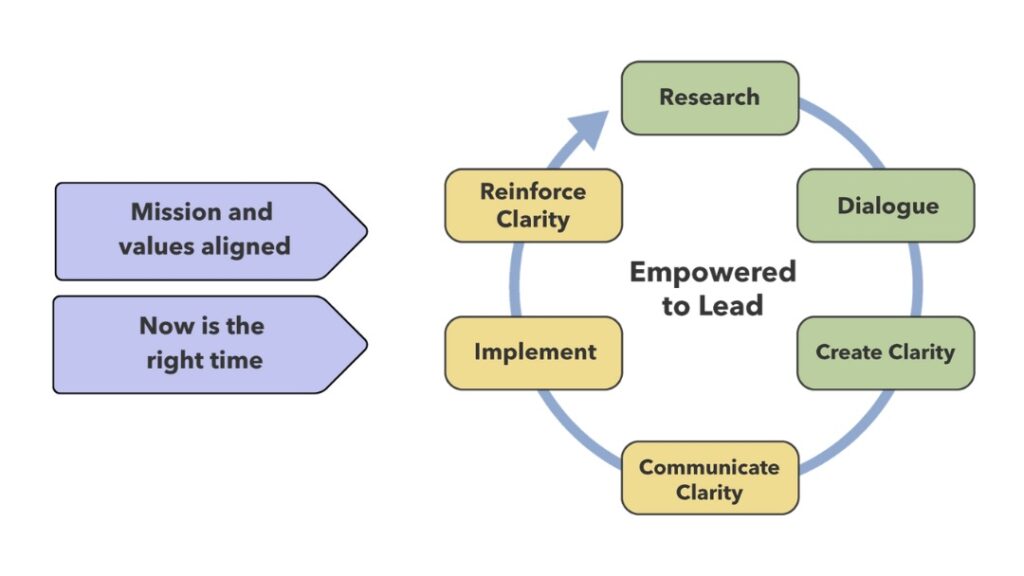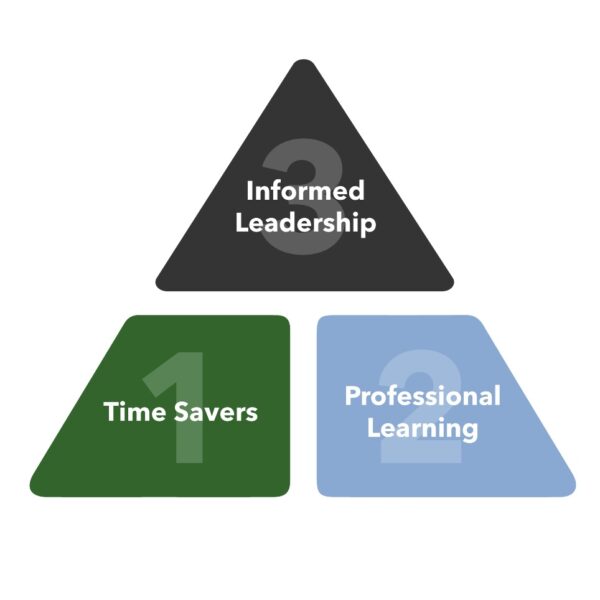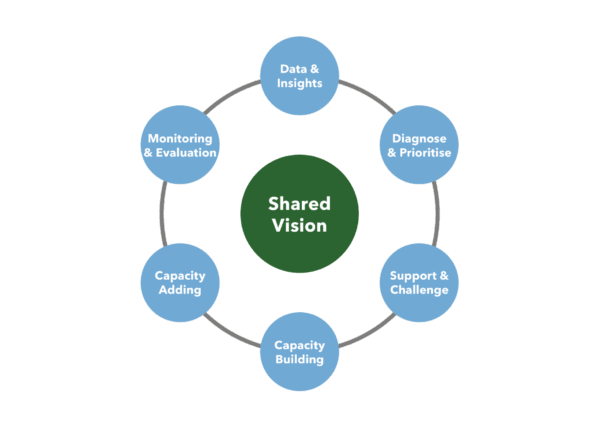Exceptional schools need and demand exceptional leaders and a talented body of staff.
All our leaders, regardless of their role, are exposed and expected to engage in the latest research as part of our Empowered to Lead Model and improvement sprints.
Headteachers and senior leaders receive coaching and training from wider members of the Executive Team as needed.
Senior Trust Leaders for different subjects meet with the relevant leaders across the Trust to ensure that our middle leaders are the engine room for school improvement within each of our schools. Each of these school improvement teams share best practice and implement set active ingredients and relevant toolkits.
The Trust can provide additional capacity to support schools where needed, for example, Deputy and Assistant Headteachers.
All staff craft a Professional Learning Plan to help them develop and achieve their professional ambitions.
The Professional Learning Academy activates the professional learning that is needed Trust-wide. Professional Learning leads in each school craft and sequence school-level learning.




